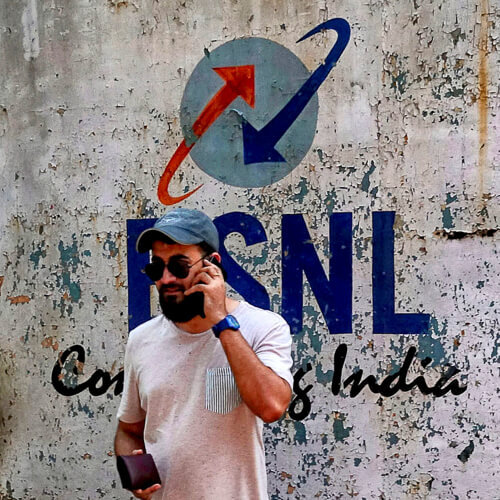India's BSNL records a 4G milestone
India's state-owned Bharat Sanchar Nigam Limited (BSNL) is finally moving closer to bring 4G services to its subscribers.

India's state-owned Bharat Sanchar Nigam Limited (BSNL) is finally moving closer to bringing 4G services to its subscribers.
The telecom minister, Ashwini Vaishnaw, tweeted that he had made the first 4G phone call on BSNL's indigenously developed 4G network. Tata group's Tata Consultancy Services (TCS) led consortium, including the Centre of Development of Telematics (C-DoT) and Tejas Networks, a prominent domestic vendor recently acquired by Tata Group, are conducting a 4G trial in Chandigarh and Ambala in northern India.
Figure 1:  May the fourth: BSNL is a step closer to bringing customers their home-grown 4G network.
May the fourth: BSNL is a step closer to bringing customers their home-grown 4G network.
(Source: SOPA Images Limited / Alamy Stock Photo)
BSNL's 4G is now available in some parts of the country, and the company is offering free 4G SIMs to subscribers until the end of 2021 to push users on to 4G. While India is moving closer to the 5G spectrum auction likely to be held in early 2022, BSNL has been struggling to launch 4G services. Meanwhile the telecom ministry has asked C-DoT to start working on 6G technology.
Long and winding path
BSNL's 4G journey has been fraught with delays and controversies. It initially came up with a tender to set up 57,000 4G sites across the country. However, later the government mandated that BSNL should only work with Indian firms and use indigenously developed 4G technology.
Made first call over Indian 4G network of BSNL (Designed and Made in India).
— Ashwini Vaishnaw (@AshwiniVaishnaw) October 10, 2021
PM @narendramodi Ji's vision of Aatmanirbhar Bharat taking shape.
The TCS-led consortium of Indian firms is now carrying out proof of concept (POC) testing for indigenously developed technology. This is the first time that India will use homegrown technology.
The company will be launching a full-scale 4G network while competitors Bharti Airtel, Reliance Jio and Vodafone Idea are preparing the network for 5G.
Want to know more about 3G, 4G and WiFi? Check out our dedicated channel here on
Light Reading.
BSNL has around a 10% market share, and is burdened with a massive debt of about INR30 billion ($397 million). The service provider hopes to raise approximately INR380 billion in equity with help from the department of telecom, because BSNL has to spend more to promote domestic technology.
The operator is likely to spend INR150 billion ($1.98 billion) on capital expenses and INR7500 million ($99.32 million) on operational expenditure annually.
While the BSNL's pan-India 4G network is still some time away, it is unclear whether it will help the company gain market share, since private telcos will have launched 5G by then and, in all likelihood, will have moved a significant chunk of 2G subscribers to 4G.
Related posts:
— Gagandeep Kaur, contributing editor, special to Light Reading
Read more about:
AsiaAbout the Author(s)
You May Also Like












